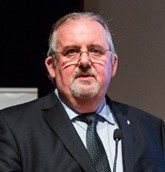by Enhancing Stakeholder Engagement
FEATURED PAPER
By Massimo Pirozzi and Marco Pirozzi
Rome, Italy
ABSTRACT
In each project, the communication is a powerful support to the stakeholder engagement and, therefore, to the generation and the delivery of value. In addition, the use of the online communication gives the opportunity of increasing the number of stakeholders that are involved in all projects, and of enhancing their engagement too, so enabling an additional value to be delivered. This paper gives an overview about the essential role of interactive communication in the projects, shows how the stakeholder engagement acts as an enabler of the project value, highlights the important role that online communication may have in all projects, and finally proposes, as an example of successful use of online communication, the case of video games projects.
THE ESSENTIAL ROLE OF INTERACTIVE COMMUNICATION IN THE PROJECTS
We may define the communication as a two or more way transfer that involves human relations aspects, while, on the other side, the concept of information can be limited to a one-way rational transfer of data, which does not necessarily involve any feedback or the existence of a personal relation. Indeed, the etymology of word “communication” is from Latin “communicatio”, roots of which indicate “a common participation”, or “the action of letting someone in on a subject”; therefore, from ancient times, the concept of communication is bound to the sharing of information, rather than to their unidirectional broadcasting, and, then, the model of communication, which is evidently valid in case of project communication too, is not purely linear, but absolutely interactive (Pirozzi, 2019).
However, project management literature quite always focused on project communication as if it was a synonym of project information, so generating a significant risk of harmful mistakes and/or misunderstandings in the direction of underestimating the other stakeholders’ roles and contributes, and, therefore, of overlooking the importance of their feedback. In addition, since – as per the first communication axiom (Watzlawick, Beavin, and Jackson, 1967) – “one cannot not communicate”, in all project communications the interactivity is not an option to be selected or refused, but is an essential issue that is embedded, and then always actively present, in all relationships with, and among, the project stakeholders.
In general, all project communications are purposeful, and the interactivity is for them a basic driver. The main purpose that is commonly attributed to project communication is the proper exchange of project information, which is necessarily linked, in any case, with the existence of an appropriate feedback that can ensure both the correct receipt, and a satisfactory understanding, by the stakeholders who are the recipients. Therefore, in order to exchange properly project information, there is the need not only of the availability of a common communication domain to reach the recipients and of an effective message transmission to deliver the desired contents, but also of specific actions that may stimulate the receiving stakeholders to release their feedback. It is worth affirming once again that, in projects, the effectiveness in communication – including the receiving of the feedbacks – is evidently part of project manager responsibilities – the receivers are stakeholders, and not devices, and then they cannot be considered by default responsible of a bad reception of our messages! –, and that exchanging properly project information requires a communication continuum to be managed, and not just an informative broadcast towards stakeholders.
More generally, the facts show us that project communications have also a larger purpose, which is the generation and the exchange of value; of course, this value may be positive in case of effective communication, while may be negative in case of poor, inadequate or missing communication. In fact, organizations that communicate more effectively realize projects that are more successful, and specific surveys demonstrated (Project Management Institute, 2013) that high-performing organizations were about 50 percent more effective in meeting original project goals and business intents, almost 100 percent more efficient in respecting time constraints, and almost 60 percent more efficient in finishing projects within budget. Definitively, it is significant that the “soft” process of communicating has, in any case, “hard” impacts on scope, quality, time and costs, since it is proven that a direct correlation between project communication and project results exists. In addition, other surveys showed the significant increase of the perceived importance of project communication by the project management community (Project Management Institute, 2018), and confirmed that today the poor/inadequate communication is considered a major cause of project failure (Project Management Institute, 2021) by a considerable percentage – even much more numerous than some years ago – of professionals, so demonstrating the ever concrete and rising importance that communication has for all project stakeholders.
In general, an effective communication influences positively the stakeholder engagement, which, on turn, is a basic driver for the generation, the perception, and the delivery of the project value.
More…
To read entire paper, click here
How to cite this paper: Pirozzi, M. and Pirozzi, M. (2021). Online Communication to Increase Project Value by Enhancing Stakeholder Engagement; PM World Journal, Vol. X, Issue V, May. Available online at https://pmworldlibrary.net/wp-content/uploads/2021/05/pmwj105-may2021-Pirozzi-Pirozzi-Online-Communication-to-Increase-ProjectValue.pdf
About the Authors

Massimo Pirozzi
Rome, Italy
![]()
Massimo Pirozzi, MSc cum laude, Electronic Engineering, University of Rome “La Sapienza”, Principal Consultant, Project Manager, and Educator. He is a Member of the Executive Board and of the Scientific Committee, and an Accredited Master Teacher, of the Istituto Italiano di Project Management (Italian Institute of Project Management). He is certified as a Professional Project Manager, as an Information Security Management Systems Lead Auditor, and as an International Mediator. He is a Researcher, a Lecturer, and an Author about Stakeholder Management, Relationship Management, and Complex Projects Management, and his papers have been published in U.S.A., in Italy, and also in Russia; in particular, he is the Author of the innovative Book “The Stakeholder Perspective: Relationship Management to enhance Project value and Success”, CRC Press, Taylor & Francis Group, Boca Raton (FL), U.S.A., October 2019. Due to the acknowledgement of his comments on stakeholder-related issues contained in Exposure Draft of The Standard for Project Management – 7th Edition, he will be also included in the list of Contributors and Reviewers of The PMBOK® Guide – Seventh Edition, and he received the Certificate of Appreciation for Excellence for his volunteer contributions to the Project management Institute and the project management profession in 2020.
Massimo Pirozzi has a wide experience in managing large and complex projects, programs, and portfolios in national and international contexts, and in managing business relations with public and private organizations, including multinational companies, small and medium-sized enterprises, research institutes, and non-profit organizations. He worked successfully in several sectors, including Defense, Security, Health, Education, Engineering, Logistics, Cultural Heritage, Transport, Gaming, Services to Citizens, Consulting, and Web. He was also, for many years, a Top Manager in ICT Industry, and an Adjunct Professor in Organizational Psychology. He is registered as an Expert both of the European Commission, and of Italian Public Administrations.
Massimo Pirozzi is an Accomplished Author and an International Editorial Advisor of PM World Journal. He received two 2019 PM World Journal Editor’s Choice Awards for his featured paper “Stakeholders, Who Are They?”, and for his report from Italy titled “PM Expo® and PM Maturity Model ISIPM-Prado®”. He received also the 2018 PM World Journal Editor’s Choice Award for his featured paper “The Stakeholder Management Perspective to Increase the Success Rate of Complex Projects”.
Massimo can be contacted at max.pirozzi@gmail.com.

Marco Pirozzi
Rome, Italy
![]()
Marco Pirozzi, Project Manager, Communication Specialist and Social Media Manager, got a Bachelor’s Degree in Digital Communications, Technologies, and Cultures at the University of Rome “La Sapienza”, discussing a Thesis on the topic of Communication in Psychotherapy. He has the Advanced Certification in Project Management ISIPM-Av® released by the Istituto Italiano di Project Management (ISIPM); he is certificated in Social Media Management; and he attended Advanced Courses in Neuromarketing. He is experienced in Management of Customer Relationships, both at national and at international levels, in the Food and Beverage Sector. His interests focus on project management and digital communication, including social media, video, and music formats.
Marco can be contacted at pm.marco.pirozzi@gmail.com.









